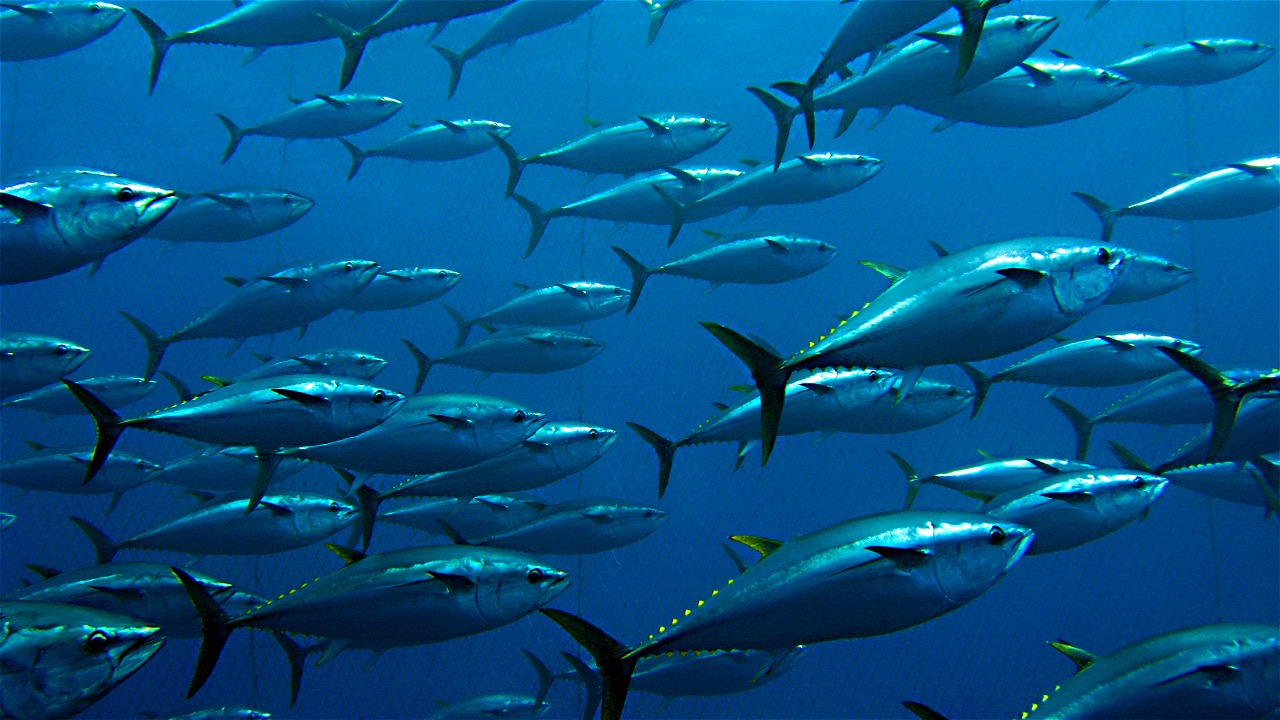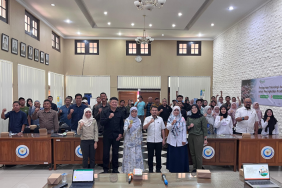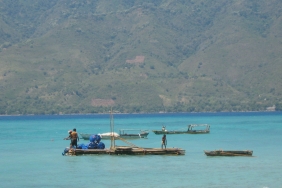IMPORTANT STEPS TOWARDS ECOSYSTEM-BASED FISHERIES IN NTT
By: Nina Samidi
The potential of marine resources, especially fisheries, will always coexist with the activities of fishermen in utilizing the sea. Information on the latest conditions of resources needs to be updated periodically to determine the carrying capacity of natural resources for existing fisheries utilization patterns.
Therefore, it is important to socialize basic data or fisheries baseline, which aims to support the realization of sustainable fisheries management. Why is this so? Because every fishing regulation made is very important in a region as a model approach that can accommodate the interests of the community. These regulations are also made to maintain the sustainability of fish stocks. Currently, the recommended regulation, which is also designed to support the regional economy, is ecosystem-based management for fisheries.
In order to increase the carrying capacity of fisheries resources, sustainable fisheries utilization practices need to be implemented. These can be adopted from fishing methods in other areas that can be adapted to the conditions in the area that needs it. In this case, WWF Indonesia collects the information in a living document called BMP (Better Management Practice) for tuna fisheries.
On June 9 - 10, 2011 at Kristal Hotel Kupang, East Nusa Tenggara, there was an activity initiated by WWF Indonesia Solar Project on capture fisheries issues in three working areas, namely East Flores, Lembata, and Alor districts. This activity aims to socialize the tuna fisheries BMP protocol and ecosystem-based fisheries management, as well as the results of the baseline survey of reef fish and tuna fisheries in fishing villages.
The activity was attended by 33 participants consisting of East Nusa Tenggara Provincial Fisheries and Maritime Affairs Office, Fisheries and Maritime Affairs Office, Village Heads and fishermen from East Flores, Lembata and Alor Regencies, Fisheries Industry (PT.Ocean Mitramas, ANOVA, PT. Indo Primo Ikan, PT. Okishin Flores), academics (University of Muhammadiyah Kupang, Arta Wacana Christian University, Nusa Cendana University), as well as FAO, and The Nature Conservancy. The speakers in this activity were WWF-Indonesia Fisheries Program Coordinator Abdullah Habibi who delivered about ecosystem-based fisheries management and initial socialization of reef fish and tuna fisheries baseline in Solar, while WWF Solar Project Fisheries Officer Dwi Ariyogagautama explained about tuna fisheries BMP protocols.
After listening to the workshop participants through discussions, in order to follow up and address matters related to ecosystem-based fisheries management, fisheries data collection, destructive fishing, and better management practices for tuna fisheries, the participants then jointly formulated an agreement related to sustainable fisheries that will be implemented in their respective districts, which include:
- Good fisheries management guidelines for tuna fisheries need to be completed, with several things agreed upon:
- Commitment from entrepreneurs to improve fair trade and understanding on fish quality grading practices, standardized weighing scales both to internal companies and to fishermen.
- Forum and village government will work together to facilitate entrepreneurs to conduct environmentally friendly fisheries activities, including licensing to the district government.
- There needs to be an agreement between the businessmen and the fishermen forum, which is known by the village government and the District Fisheries and Marine Office regarding the method and standard of grade, standard scales, prices and recording of fisheries data.
- Fisheries baseline data collection results in East Flores, Lembata, and Alor need to be improved. Fisheries data collection needs to be strengthened with:
- Description of baseline data in detail according to the type of fishery where the study is carried out, then there needs to be consultation of the results of the analysis to related parties to ensure the accuracy of the data.
- Propose to the Department of Fisheries and Marine Affairs to assist/delegate authority to the village government for fisheries activities in fisheries centers, in connection with transportation activities (Certificate of Origin) and fisheries data recording.
- Stakeholder support, especially from fishermen, entrepreneurs and village government is needed to strengthen forum activities and fisheries data recording.
- Environmentally unfriendly fisheries activities need to be addressed by:
- Building understanding and collaboration of all parties (fishermen, businessmen, law enforcement officers, related agencies, academics, NGOs) to find solutions to the problem of destructive fisheries.
- Socialization, education and environmental campaigns involving all parties (fishermen, businessmen, law enforcement officials, related agencies, academics, NGOs)
- Monitoring and enforcement against environmentally unfriendly fisheries activities.
- Socialization of fisheries management with ecosystem approach needs to be followed up to support sustainable fisheries management in East Flores, Lembata, and Alor districts.
The above agreements are expected to be implemented to realize sustainable fisheries management in the districts of East Flores, Lembata, and Alor.





